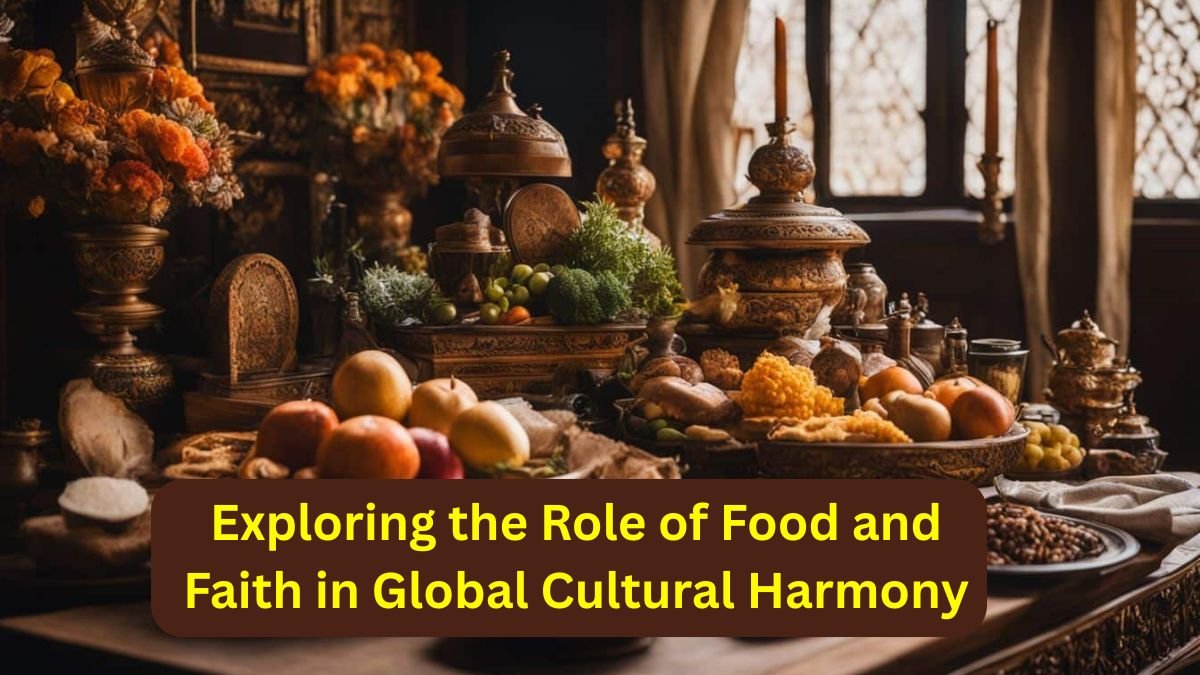The biggest identity of human civilization is its culture. Culture is not limited to language, customs and art, but it also has deep dimensions like food and faith. These two aspects not only shape the identity of a community, but also work to connect different societies. When we talk about “cultural harmony” at the global level, food and faith are counted among its most important pillars.
In this article, we will understand in detail how food and faith connect diverse cultures around the world, increase mutual trust and strengthen the feeling of unity at the global level.
Food: Mirror of Culture
Food is the most direct and vibrant symbol of the culture of any society. Every country, every region and every religion has its own special food tradition. For example—
- In India, dal, rice, vegetables and spicy dishes are the basis of culture.
- In Japan, sushi is not just food, but a symbol of lifestyle and discipline.
- Pasta and pizza in Italy are a symbol of sociality and family unity.
Food is not limited to taste, but it also expresses traditions and philosophy of life. When a person tastes the food of another country, he gets closer to that culture.
Faith: An invisible bond
Faith does not only mean religious belief, but it is also a way of life. Faith teaches us how we should behave with others, what should be our values and how we should look at society.
- Fasting in Islam is a symbol of restraint and equality.
- The practice of “communion” in Christianity is a symbol of shared food and brotherhood.
- Distributing prasad in Hinduism reinforces the idea of ”God in all”.
- The idea of ”charity” in Buddhism shows the path of compassion and sacrifice.
Faith is the connecting thread of humans which is beyond borders and languages.
Confluence of food and faith
Often food and faith come together to form the basis of cultural harmony. Festivals and religious occasions are the best examples of this.
- Sharing seviyan and biryani on Eid is not just a tradition of sharing food, but a tradition of sharing.
- Giving cakes and feasts on Christmas is a symbol of unity and love.
- Relationships are strengthened by sharing sweets on Diwali.
- Eating dumplings on Lunar New Year in China and Korea is considered a wish for prosperity and good luck.
These traditions teach us that even if religion and culture are different, food and faith can bring us together.
Role of food and faith in global tourism
Today is the era of “globalization”. People do not travel only to roam, but also to live and understand the new culture. “Food tourism” and “pilgrimage tourism” are examples of this.
- Tourists visiting India feel the depth of Indian culture by watching Ganga Aarti on the ghats of Banaras and tasting Kachori-Jalebi.
- People visiting Italy experience the religiosity of Vatican City as well as the real deliciousness of pasta-pizza.
- Visiting Shinto temples in Japan and tasting sushi connects people to culture.
In this way, food and faith give tourists not only memories but also “cultural learning”.
Bridge of dialogue and understanding
When people taste the food of another religion or culture or participate in their religious traditions, prejudices are removed from their minds.
For example—
- If a Hindu person eats Eid biryani with a Muslim friend, he considers it not just food but a symbol of brotherhood.
- If a foreigner enjoys a vegetarian feast at an Indian wedding, he becomes a part of the Indian tradition.
This increases cultural understanding and tolerance, which is the foundation of global harmony.
Challenges in the modern world
Although food and faith are means of connecting, some challenges also arise in the modern world.
- Religious intolerance: Some people are unable to accept the food or tradition of other religions.
- Fast food culture: Global fast food (such as burgers and pizzas) sometimes pushes local cuisines to the background.
- Commercialization: Festivals and religious feasts are nowadays taking a commercial form.
Despite these challenges, the world is still being united by the power of food and faith.
Importance in education and research
Nowadays special attention is being given to “Food Studies” and “Religion Studies” in universities and research institutes. Through these, an attempt is made to understand how food and faith connect societies.
- Many foreign universities teach “Indian Food Culture”.
- Religious studies teaches how the world’s religions connect food with spirituality.
- This education will make future generations more tolerant and aware.
Digital age and cultural bridges
Social media has given a new means to connect food and faith on a global level.
- “Food vloggers” on YouTube connect cultures by showing cuisines from different countries.
- Festival glimpses on Instagram connect people around the world.
- Online religious discourses and virtual “food festivals” also give people cultural experiences.
In this way, digital platforms have made food and faith more global.
Future direction
Food and faith will become even more important in the future because:
The world is battling climate change and disasters, in such a situation, sharing of food will save humanity.
Religious and cultural dialogue can create global peace
Conclusion
Food and faith are not just means of survival, but they are bridges that connect different societies and cultures across the world. When we adopt another person’s food or respect their faith, we join a common stream of humanity that transcends borders.
